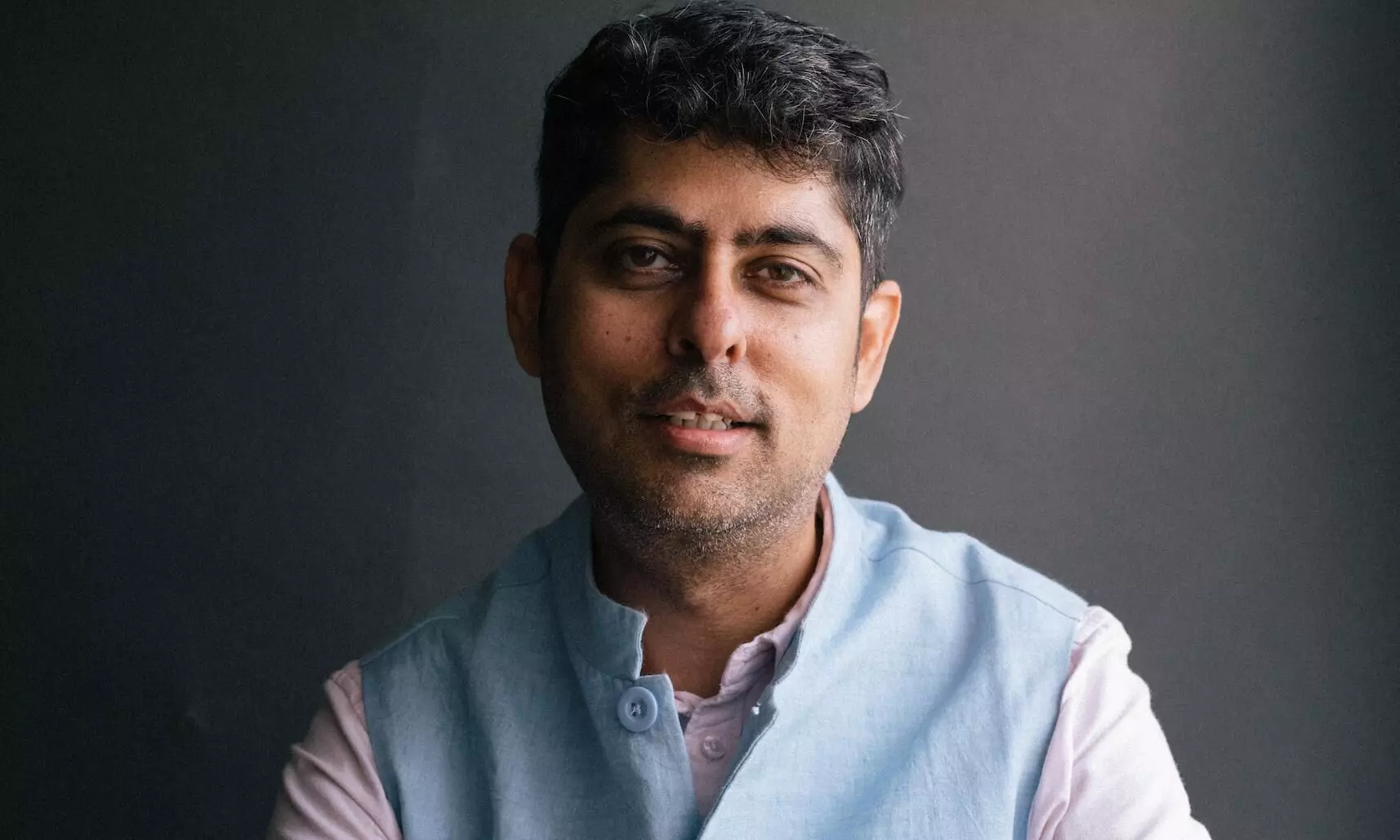Industry ensures writers remain unseen & unrecognised: Varun Grover
The lyricist, writer and director has been selected for BAFTA Breakthrough Programme

When it comes to being multifaceted, Varun Grover is a name that cannot be missed. If you’re a fan of online content, chances are you’ve come across his stand-up comedy, especially his sharp political humour. A writer, filmmaker, lyricist and comedian, Grover continues to display his many talents. An IIT graduate and a National Award winner, he has worked on some of the most popular films, including ‘Dum Laga Ke Haisha’, ‘Masaan’, ‘Fan’, ‘Udta Punjab’, ‘Newtown’, ‘Badhaai Do’, ‘Dunki’ and ‘Jigra’. His first film as a director, ‘All India Rank’, was screened at the 52nd Rotterdam International Film Festival. Now, he has been chosen for the ‘2024 BAFTA Breakthrough India’ programme. ‘Millennium Post’ spoke to him about his journey, the lack of recognition for writers and what’s next in store for him.
You have been selected for the BAFTA Breakthrough Programme. How does this programme support an artist’s journey?
In India, there’s a very broken, fractured and disinterested ecosystem for independent cinema and independent artists. I like to think of myself as an independent artist, though I have done some lyric writing for big studios and big films. But the kind of cinema I want to make and the kind of films I want to write mostly belong to the independent space. Beyond a point, there’s only a very small network and you don’t know how to proceed. Programmes like ‘BAFTA Breakthrough’ can fill a very important gap, allowing us to feel connected and use the resources of an international community of artists, filmmakers, writers and cinematographers. That’s the biggest advantage of this programme.
I have also been selected for my feature film ‘All India Rank’, which is my first film as a director. For any indie director, you’re constantly dealing with a lot of self-doubt about whether anyone has even seen the film. We don’t get numbers like the big films. So, when programmes like ‘BAFTA Breakthrough’ recognise your work, it feels like you’ve done something right.
You wear many hats. You are a lyricist, writer, director, dialogue writer, political commentator, stand-up comedian, actor and the list goes on. But which role is closest to you?
(Cuts in) They all are me, actually. So, it's very difficult to say. It’s not even like I’m outsourcing any of it. It’s all me. I actually have no reason to do something I don’t like, which is why I don’t think I’ll act again unless it is for a friend’s film. Acting is really difficult. I would say there are three different things I do. One is writing for cinema, which could be screenwriting or lyrics writing. Then there is stand-up comedy. Finally, there is writing fiction, like graphic novels or short stories. They all bring different kinds of joy.
Writing for film is like being part of a long tradition of storytelling. That gives me the most long-term satisfaction. Take ‘Masaan’, for example. I know that 100 years from now, some people will still discover the film. Then, stand-up comedy is something for the moment. If I crack a joke tomorrow, it may not work depending on how the world has changed in a day. So, stand-up comedy is ephemeral. Lastly, there is short fiction, which is purely for my soul. I write for children and create a lot of work that I never publish or show to anyone. That is my own practice.
Penning Tales
In the documentary on Salim Khan and Javed Akhtar, we saw how they had to struggle to secure recognition and respect for writers in the film industry. Do you think writers receive better appreciation in the industry today?
The industry values only one thing and that is success. Salim-Javed became a phenomenon because they had so many successful films. At some point, these films made the connection and were successful irrespective of the actors. So, the success of those films made them stars. But that didn’t change the industry’s perspective towards writers. One of my favourite writers is Juhi Chaturvedi. I don’t think many people even know her name. You might love ‘Vicky Donor’ or ‘October’, but most people won’t recognise her name because the industry or the system has ensured that writers remain unseen and unrecognised. Otherwise, people would know her, given that she has delivered three commercially and critically acclaimed films back-to-back.
Are you satisfied with the quality of writing in Bollywood’s commercial films? Do you think there is a common trend in how these films are written?
To me, it’s very confusing. The only trend I see is a lot of fear among people with money that they may lose big, so they are trying to stick to safe formulas. But there have been some commercial films like ‘Pathaan’. It was written in a very commercial format. I thought if you do commercial films, you should do them this way - where the dialogue is crackling, the actors look good and the action is executed well.
Lastly, when are you directing your next?
Hopefully, next year, I’ll get to do something. As of now, I’m writing a couple of scripts. I’m hoping to start shooting by early next year. But in the film industry, nothing is final until it is final.



